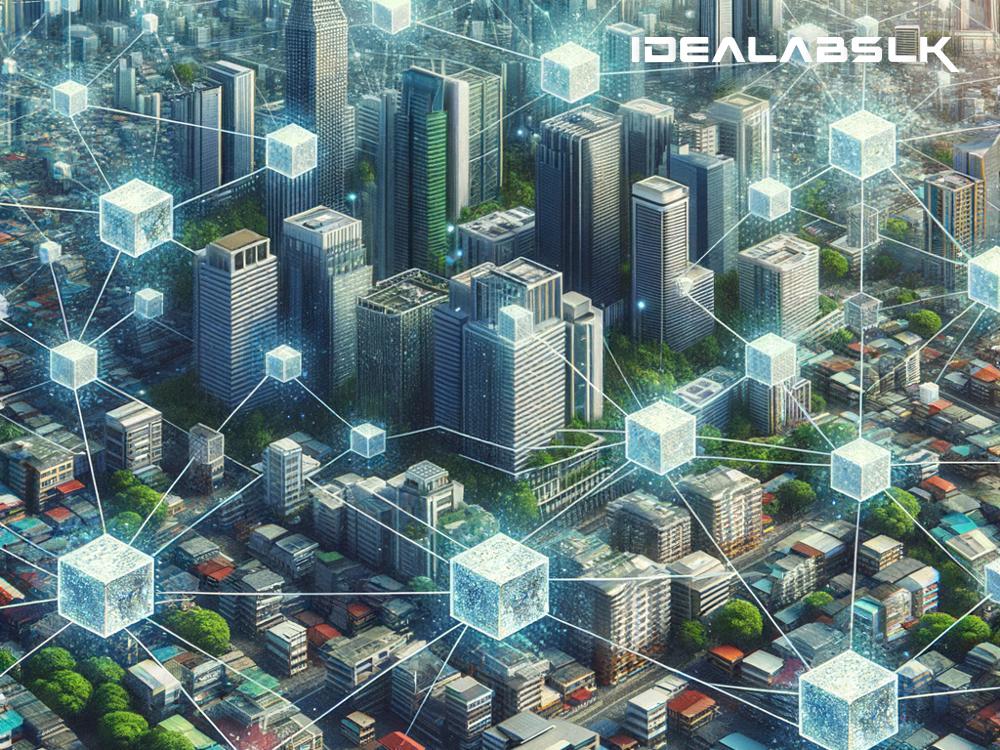The Future Brick: How Blockchain is Revolutionizing Real Estate Development Financing
Imagine building a house brick by brick, where every single piece is crucial to the overall structure. In the world of real estate development, financing is one of those fundamental bricks. It's the backbone that supports visions of architects and dreams of homeowners. However, securing funds for real estate projects can often turn into a complex, time-consuming, and somewhat opaque process with traditional methods. Enter Blockchain - a name that's stirring the pot in multiple industries, including real estate. But how exactly does Blockchain promise to revolutionize real estate development financing? Let's break it down into simpler terms.
Blockchain, Simply Put
At its core, Blockchain is a digital ledger that records transactions across multiple computers. Think of it as a highly secure, transparent, and decentralized logbook that everyone can see, but no single person controls. This technology is most famously known for powering cryptocurrencies like Bitcoin, but its potential stretches far beyond.
The Traditional vs The New Kid on the Block
Traditionally, financing real estate development involves a series of middlemen, including banks, lawyers, and government entities. Each step adds complexity, cost, and time to the process. There's paperwork to be filed, approvals to be waited on, and checks to be done. It's like running an obstacle course where the finish line keeps moving further away.
Blockchain, on the other hand, proposes an efficient, streamlined path. Through smart contracts – self-executing contracts with the terms of the agreement directly written into code – Blockchain can automate and hasten the financing process. Imagine a world where funding for your real estate project can be secured without the need to navigate through the traditional bureaucratic labyrinth.
The Layers of Transparency and Security
One of the most remarkable aspects of Blockchain is its inherent security and transparency. Since transactions are recorded in a way that cannot be altered and are visible to everyone, issues like fraud and mismanagement become far less of a concern. In the realm of real estate development financing, this means stakeholders can have greater confidence in where their money is going and how it's being used.
For developers, presenting a project on a Blockchain platform can help build trust with investors. They can offer a transparent roadmap of their project's progress and financial handling, making it easier to attract funding. For investors, the risk of falling into the traps of hidden fees or manipulated books is drastically reduced.
Global Participation and Fractional Ownership
One of Blockchain's most potent features is its ability to make real estate investment more accessible. Through tokenization, which is splitting a property into shareable digital units, investors can buy into real estate projects with significantly lower amounts of capital. This not only opens the doors for small investors but also allows developers to tap into a broader pool of funding.
Moreover, Blockchain facilitates cross-border transactions, making it easier for international investors to participate in real estate projects anywhere in the world. This global approach can significantly enhance the diversity and volume of financing available for development projects.
Efficiency is Key
Beyond security and transparency, the efficiency Blockchain brings to the table is unparalleled. Smart contracts can automate many of the manual processes involved in financing, from verification to disbursing funds. This means faster deals, reduced costs, and less red tape. For a real estate development project, time is often of the essence, and any efficiency gains can lead to significant competitive advantages.
Preparing for a Blockchain-Powered Future
While the potential of Blockchain in real estate development financing is immense, it's important to note that we're still in the early stages. The technology is evolving, and the real estate industry is only beginning to embrace its possibilities. For developers and investors alike, staying informed and adaptable to these digital shifts will be crucial.
In conclusion, Blockchain promises a future where real estate development financing is more transparent, secure, efficient, and inclusive. It's a game-changer that could streamline the path from vision to reality, breaking down barriers that have long stood in the way of progress. As we move forward, the fusion of real estate and Blockchain technology may very well lay the foundation for the next generation of property development and investment. Welcome to the future brick of real estate – welcome to the Blockchain era.

